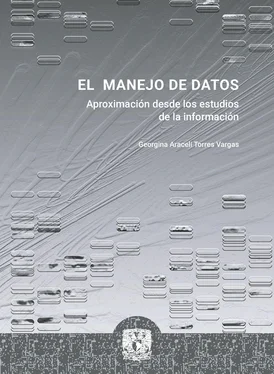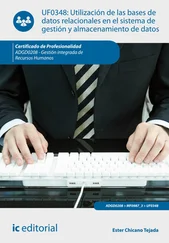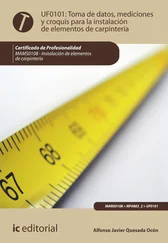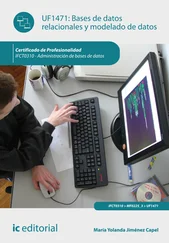The study, however, demonstrated that academic libraries are not the only centers of RDM services on university campuses. It identified new organizational strategies, including embedded services, distributed networks of RDM expertise, and multi-purpose research data services centers. In the embedded model, librarians were working on the faculty-led research projects and research labs throughout the university. They provided support not only at the beginning and end of the research cycle, but also shared expertise and advice on best data management practices throughout the research projects. Distributed networks often had formal structures and were comprised of professionals with expertise in RDM, IT, copyright, research ethics, and scholarly communication. Academic librarians often served as coordinators and referred researchers to the relevant “pockets of expertise” in the campus network. Distributed networks represented efforts in community building around improving data management practices and opening data.
Campus-wide research data service centers represent a new model that reflects an evolution of services and recognition that a more comprehensive suite of skills and expertise is necessary to support data management. Three cases were identified in the sample – one in the United States and two in Europe. Both European data service centers have evolved from RDM services originally located at academic libraries. These new interdisciplinary initiatives involved cross-campus collaboration and cooperation of several units, including the university library, IT department, legal services, and office for research. Research data service centers tended to be multi-purpose and provided university research communities not only with the expertise, tools, and infrastructure necessary to manage research data but also offered support for other forms of scholarly activities. Academic librarians were employed there along IT specialists and legal experts.
The findings of the study indicate that RDM is an evolving sociotechnical practice that involves not only technical systems and services structured around research data life cycle but also a range of social activities. The work of RDM professionals in improving data management practices and advocating open access occurs on multiple levels, starting with individual researchers and their teams, building networks at their institutions, and then expanding to regional, national, and international communities. The theme of shared values and changing research culture was discussed by participants from multiple countries, pointing to the emerging international character of the RDM profession. Community building emerged as an essential requirement for research data management and involved a shared understanding of the benefits of managed data and the impact of open data on scholarship and society.
CONCLUSION: OPPORTUNITIES AND CHALLENGES FOR THE LIBRARY FIELD
The role of academic libraries in leading and developing RDM services emerged as an important theme in the IFLA Data Curation project and in prior research (Cox & Pinfield 2014; Cox et al. 2017; Tenopir et al. 2015; 2017). The library and information science (LIS) field can take advantage of the demand for information professionals with knowledge of the research process and skills in managing and curating data. The report prepared for the European Open Science Cloud points to a shortage of data experts, estimating that half a million specialists with expertise in managing data will be needed to support researchers in the European Union (Ayris et al. 2016). The new data-intensive research environment and the global Open Science movement offer opportunities to expand library services beyond the traditional service roles in reference and instruction. Librarians can actively participate in the research process and contribute their unique expertise in information organization, metadata, and archiving. RDM services can also utilize library experience in outreach, open access advocacy, and training.
RDM also poses a set of new challenges for libraries as the field is still in an emergent phase. The development of RDM services at academic libraries involves restructuring and substantial investment in staff and resources. It requires building technical infrastructure for data storage and publishing and forming collaborative partnerships with multiple stakeholders on campus. The model of academic libraries serving as a center of RDM services is prevalent but not the only one. As the findings of the IFLA Data Curation project indicate, the organizational models have been evolving and new approaches are emerging where librarians are embedded in research projects or are becoming partners in campus-wide networks or research data services centers. The new models require strong collaborative skills and building bridges between a library, information technology unit, legal services, and other departments on campus.
The roles, responsibilities, and competencies of RDM librarians are not clearly defined and the practices continue evolving. RDM requires diverse expertise, not only in metadata and information organization standards but also technical skills. RDM creates a demand for information professionals with skills in managing and curating data and with an understanding of the scientific process and research methods. The findings of the IFLA Data Curation project point to some competency gaps in the traditional LIS education, especially in technical training and research methods. RDM as a new area of responsibility for librarians and information professionals requires a combination of technical, instruction, research, and digital archiving skills. Academic librarians have expertise in many areas but also need to acquire new skills and knowledge through expanded professional development. LIS education could also respond to the demand for data experts by developing new programs and concentrations in RDM.
Ayris, Paul, Jean-Yves Berthou, Rachel Bruce, Stefanie Lindstaedt, Anna Monreale, Barend Mons, Yasuhiro Murayama, Caj Södergård, Klaus Tochtermann, and Ross Wilkinson. “Realising the European Open Science Cloud.” The Commission High Level Expert Group on the European Open Science Cloud, 2016. Accessed November 3, 2018. https://ec.europa.eu/research/openscience/pdf/realising_the_european_open_science_cloud_2016.pdf
Bezjak, Sonja., April Clyburne-Sherin, Philipp Conzett, Pedro L. Fernandes, Edit Görögh, Kerstin Helbig, Bianca Kramer, and Lambert Heller. “Open Science Training Handbook (Version 1.0).” (2018). Accessed November 5, 2018. https://open-science-training-handbook.gitbook.io/book/#how-to-refer-to-the-handbook.
Borgman, Christine L. “The Conundrum of Sharing Research Data.” Journal of the American Society for Information Science and Technology 63, no. 6 (2012): 1059-1078.
Borgman, Christine L. Big Data, Little Data, No Data: Scholarship in the Networked World. Cambridge, MA: MIT Press, 2015.
Bornmann, Lutz, and Rüdiger Mutz. “Growth Rates of Modern Science: A Bibliometric Analysis Based on the Number of Publications and Cited References.” Journal of the Association for Information Science and Technology 66, no. 11 (2015): 2215-2222.
Carlson, Jake. “The Use of Life Cycle Models in Developing and Supporting Data Services.” In J. M. Ray (Ed.), Research Data Management. Practical Strategies for Information Professionals. West Lafayette: Purdue University Press, 2014., 63-86.
Cox, Andrew M., and Stephen Pinfield. “Research Data Management and Libraries: Current Activities and Future Priorities.” Journal of Librarianship and Information Science 46, no. 4 (2014): 299-316.
Cox, Andrew M., Mary Anne Kennan, Liz Lyon, and Stephen Pinfield. “Developments in Research Data Management in Academic Libraries: Towards an Understanding of Research Data Service Maturity.” Journal of the Association for Information Science and Technology 68, no. 9 (2017): 2182-2200.
Читать дальше











![Brian Thompson - A Monkey Among Crocodiles - The Life, Loves and Lawsuits of Mrs Georgina Weldon – a disastrous Victorian [Text only]](/books/704922/brian-thompson-a-monkey-among-crocodiles-the-life-thumb.webp)
